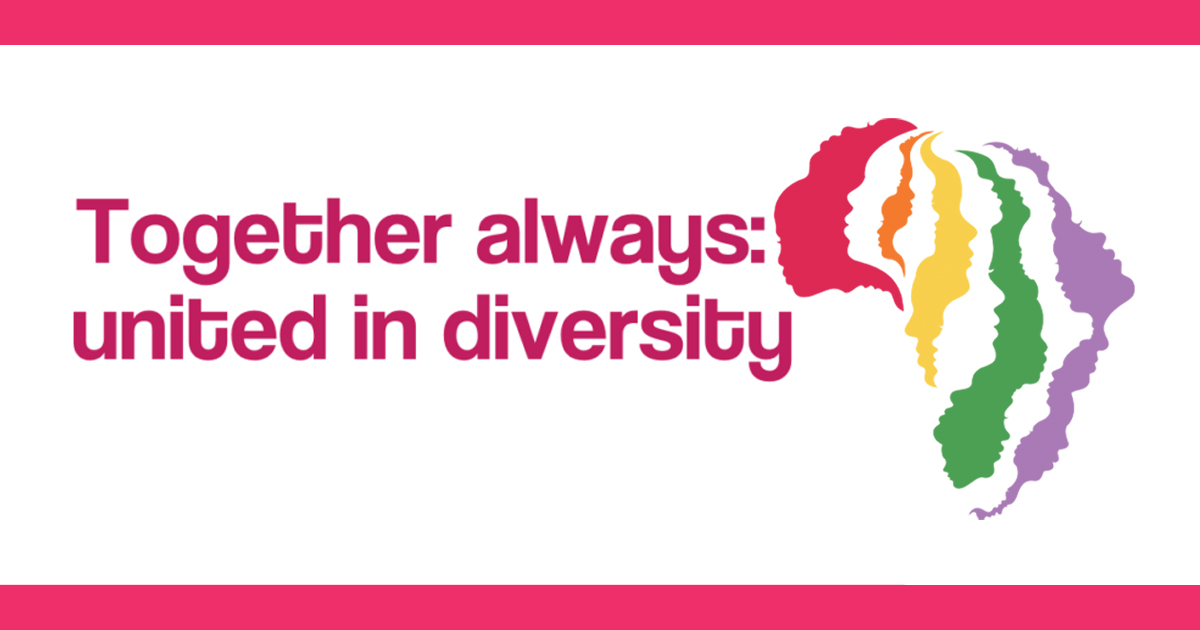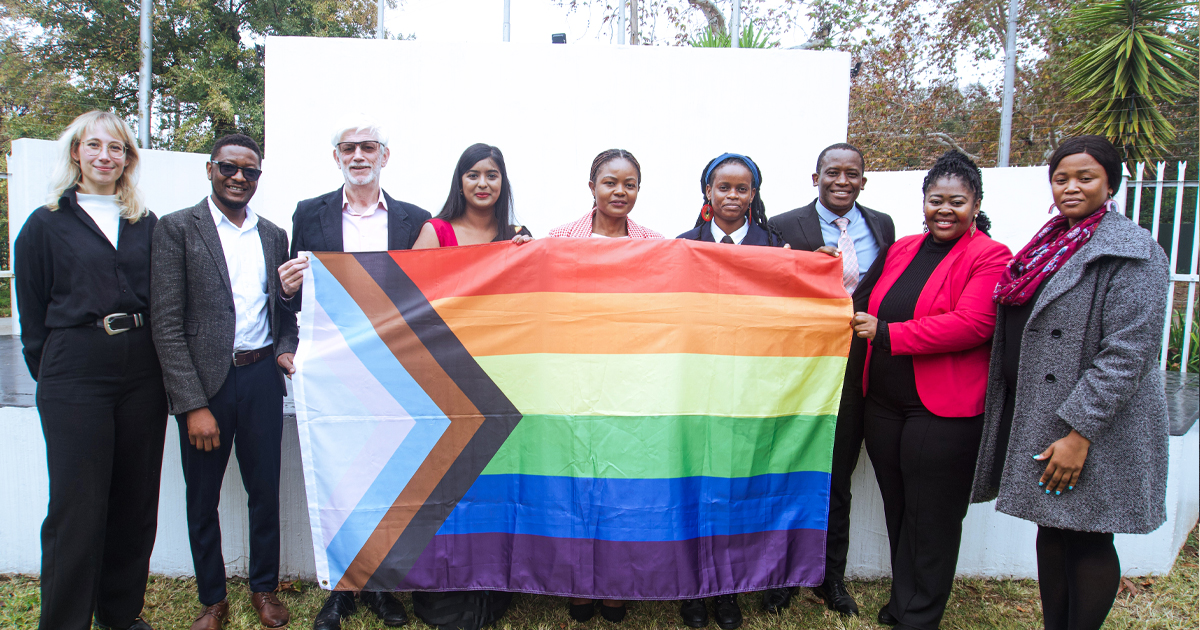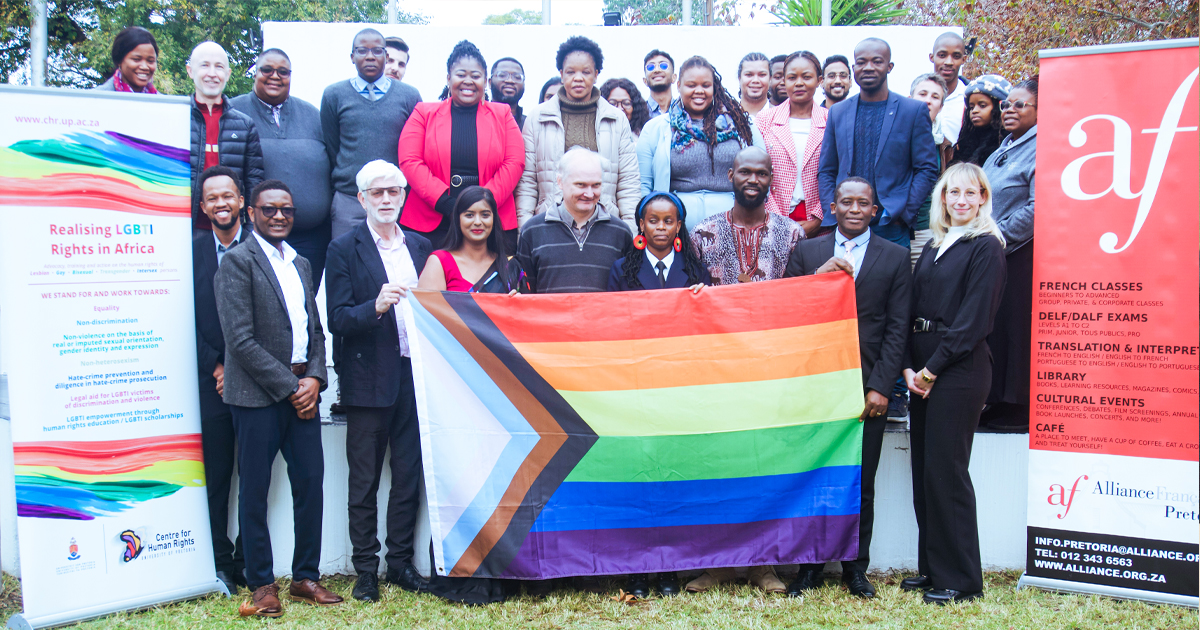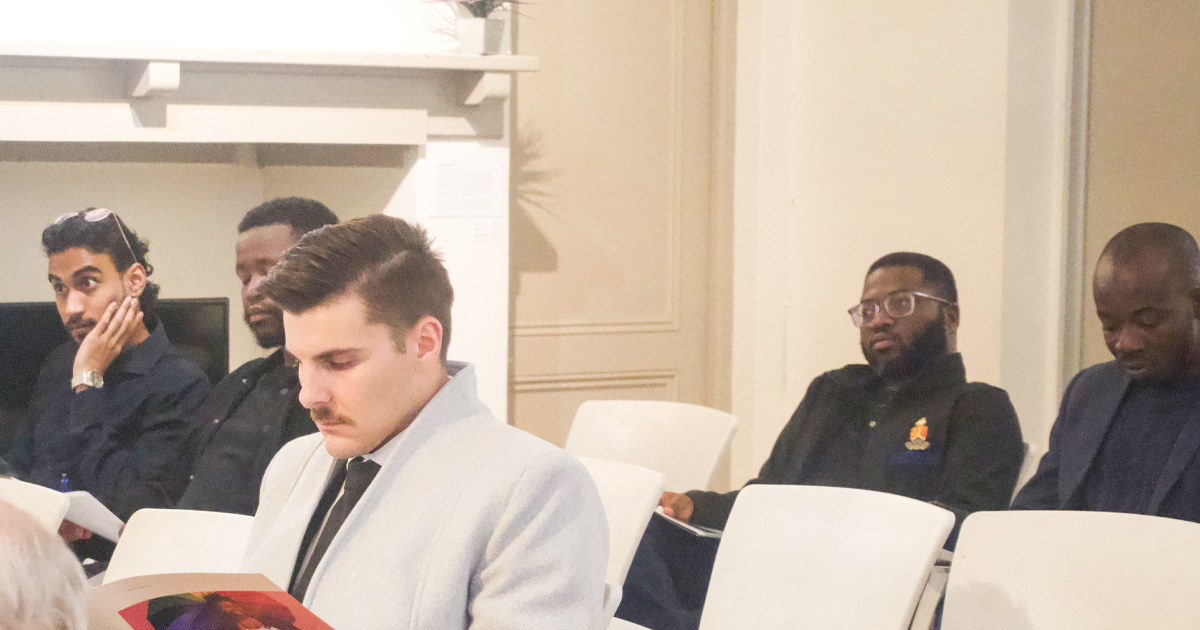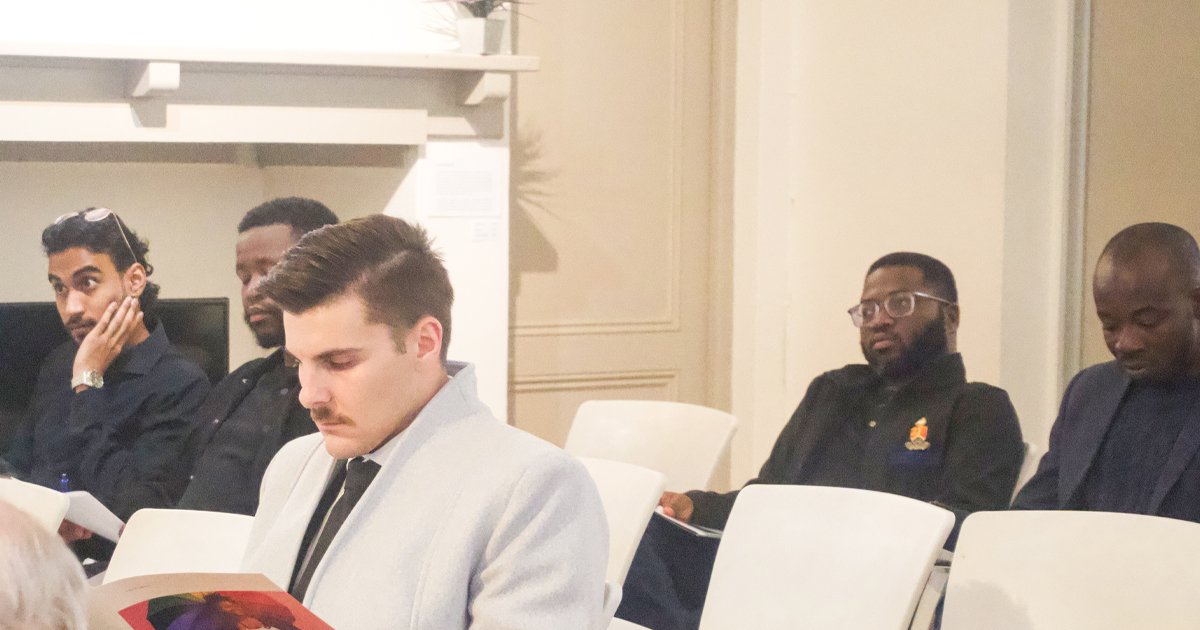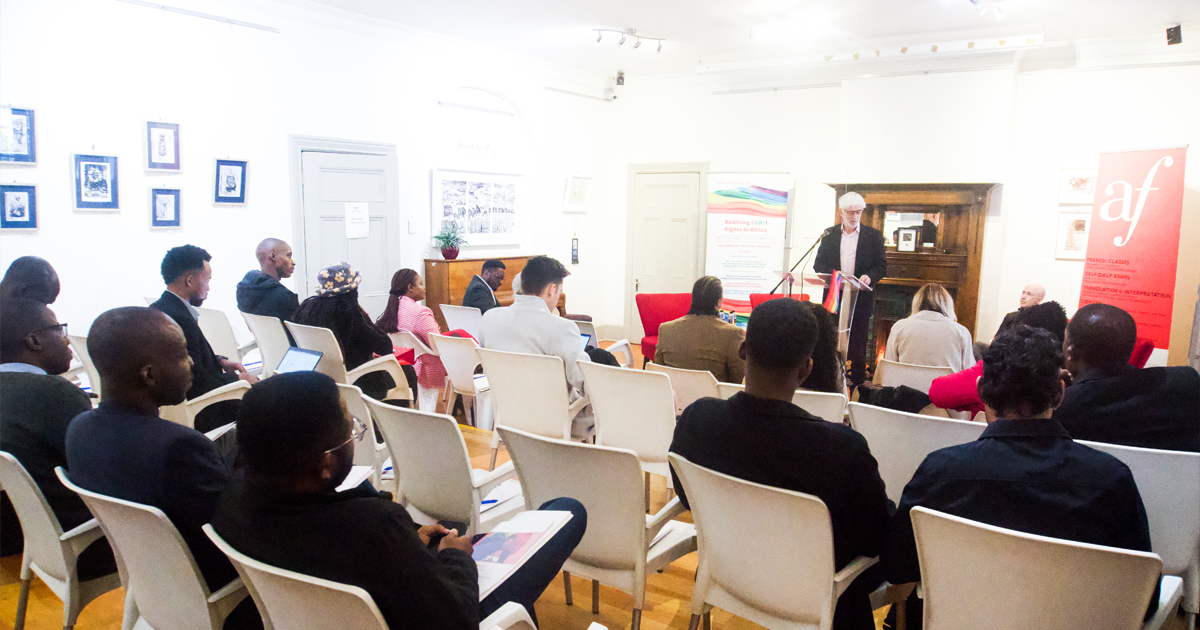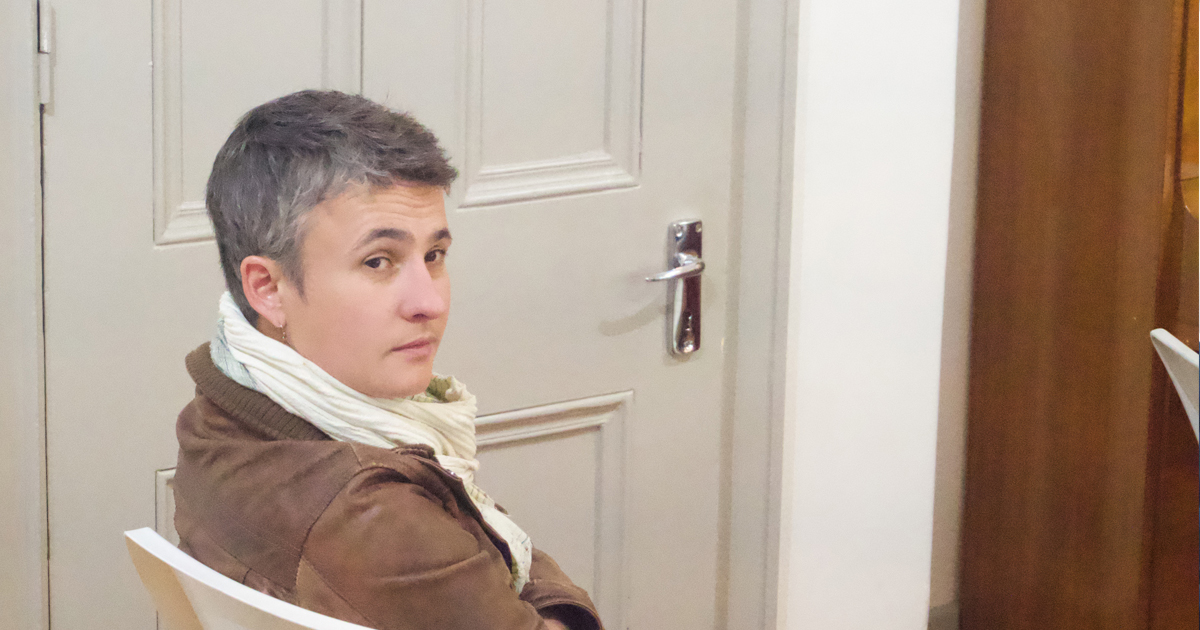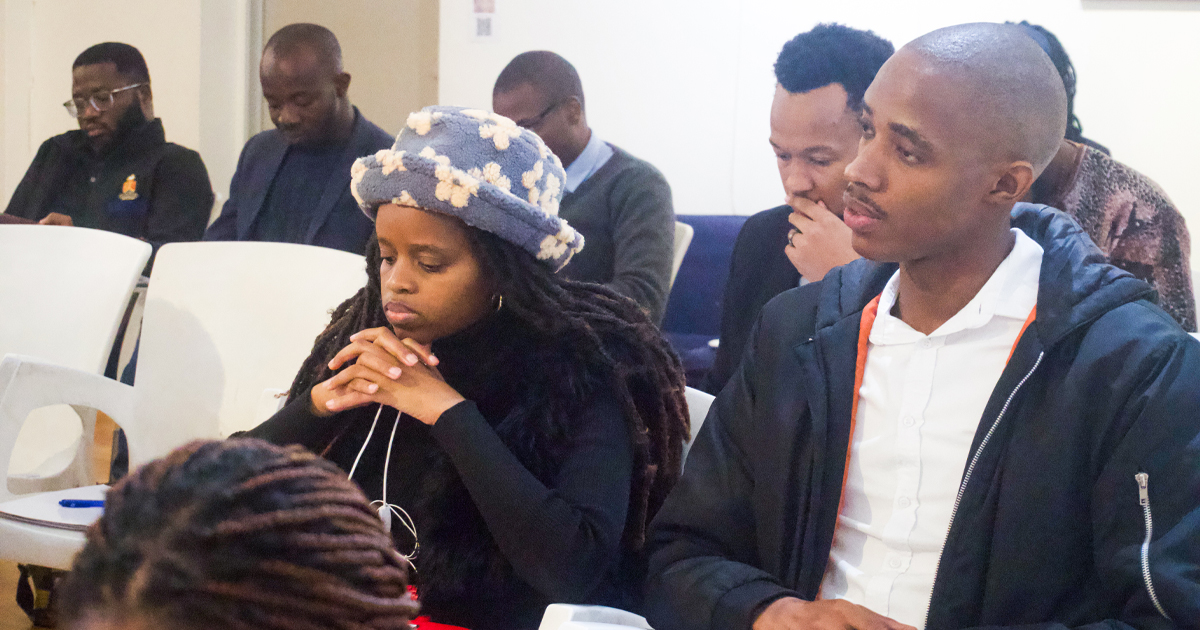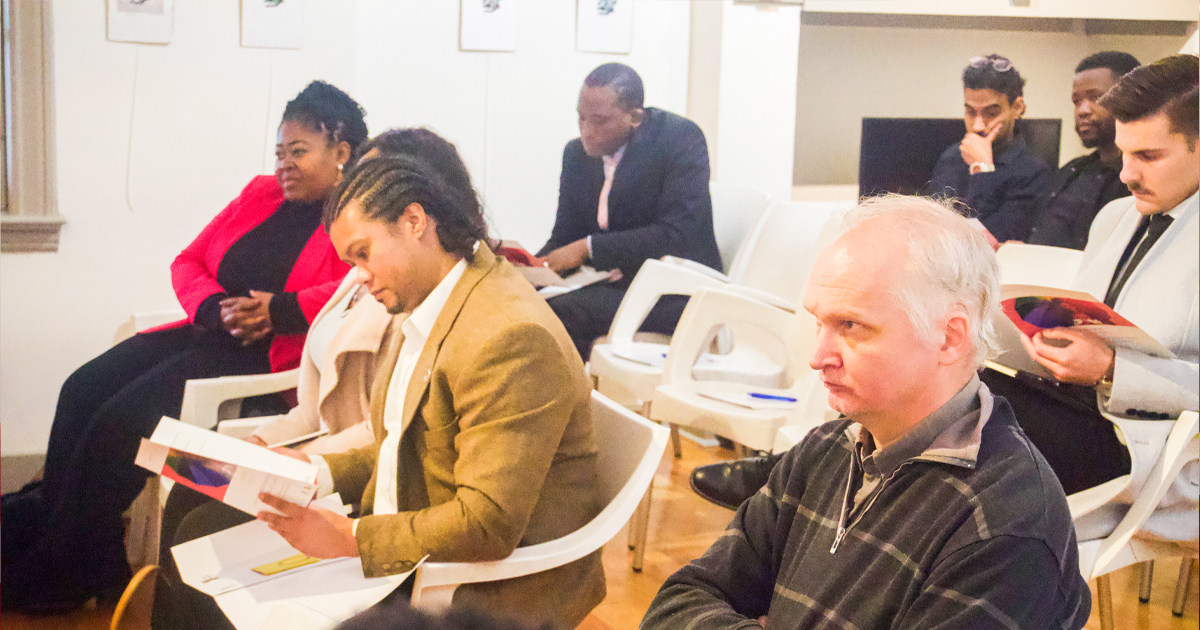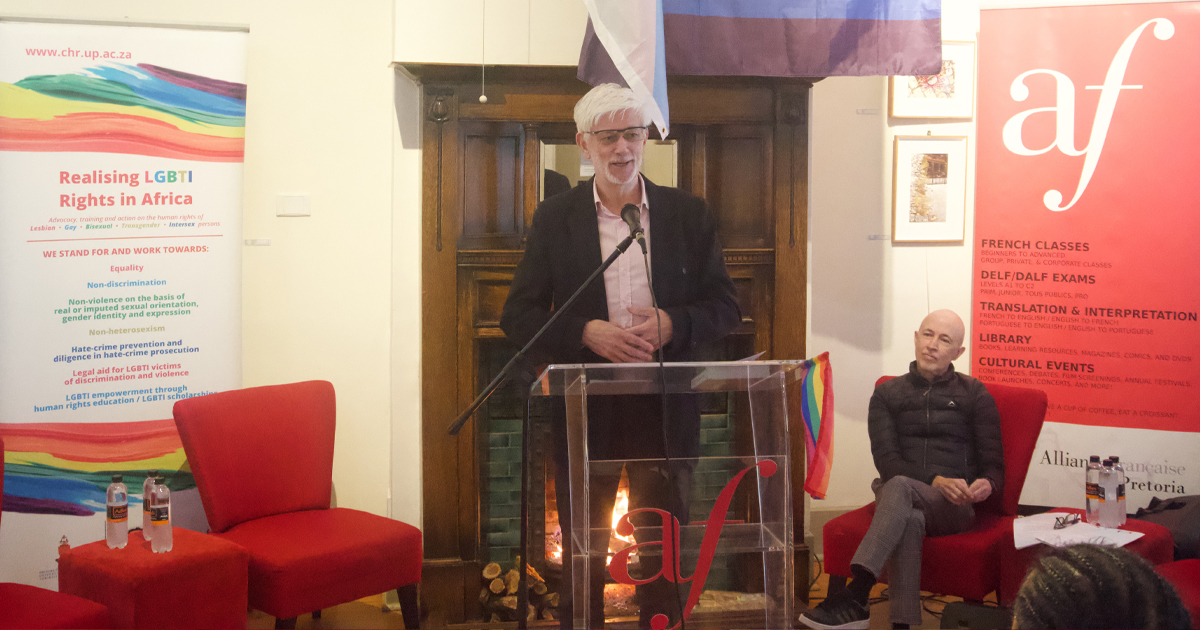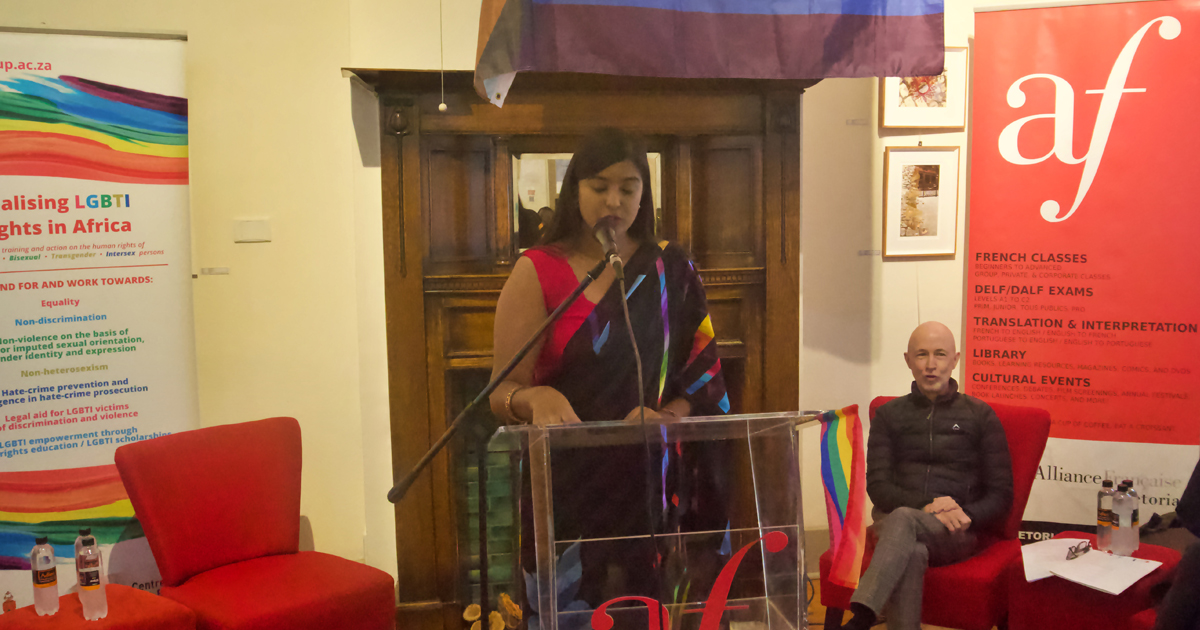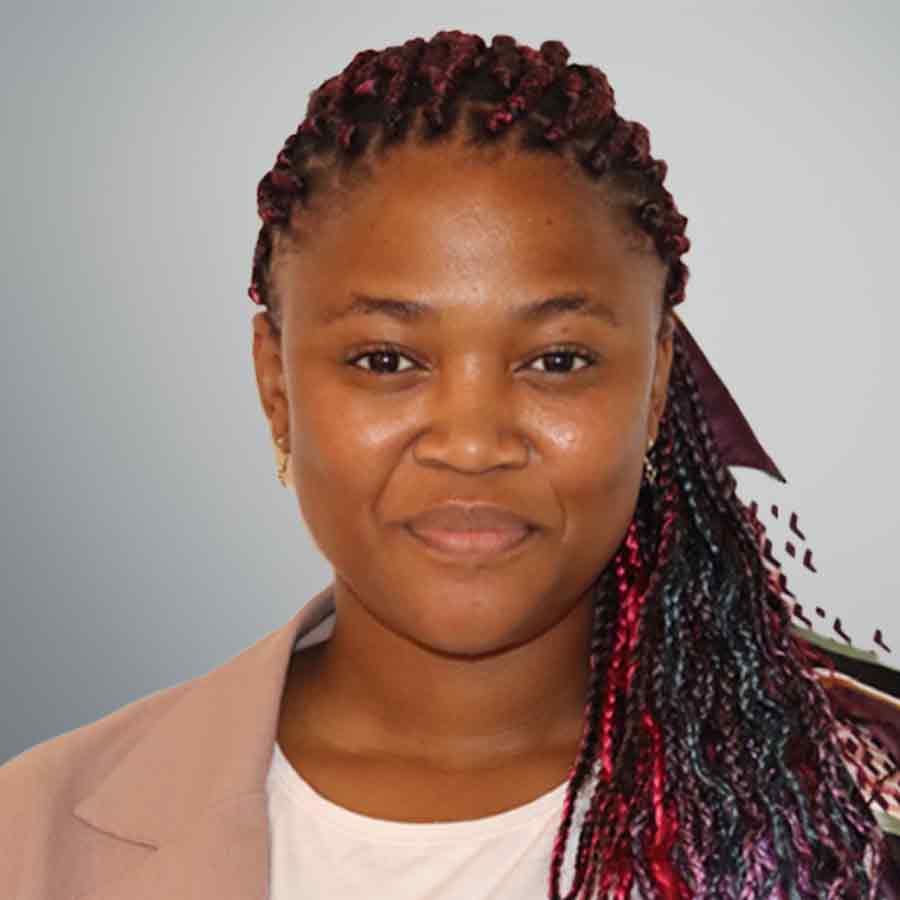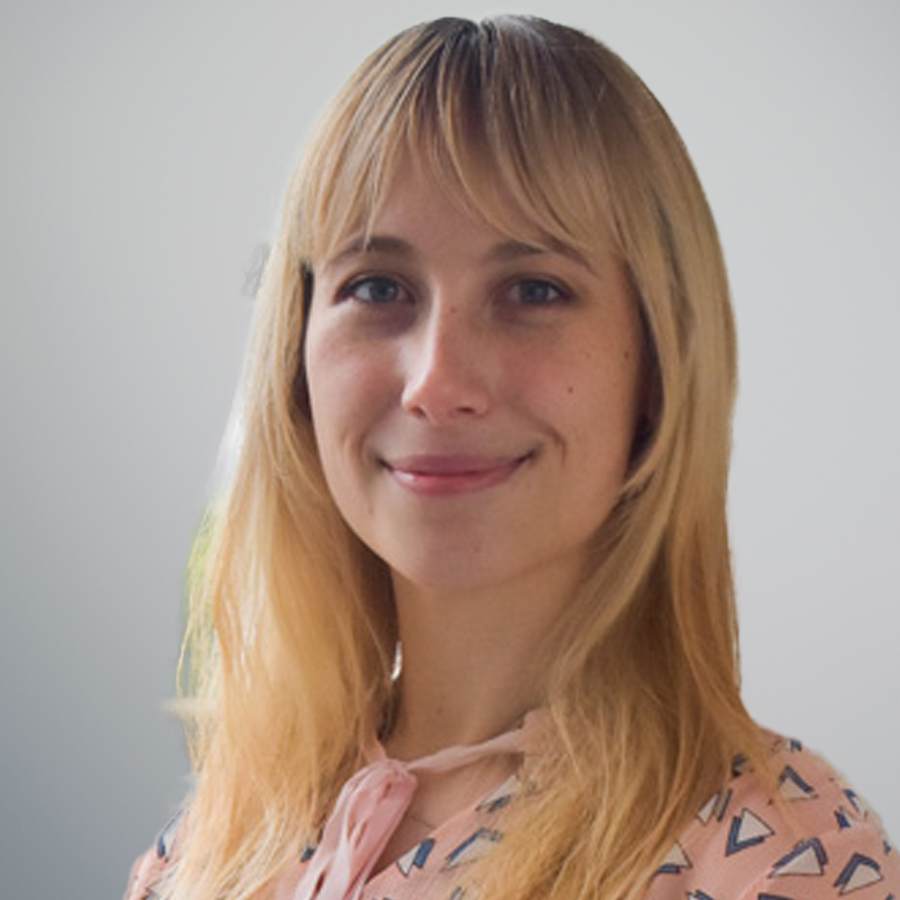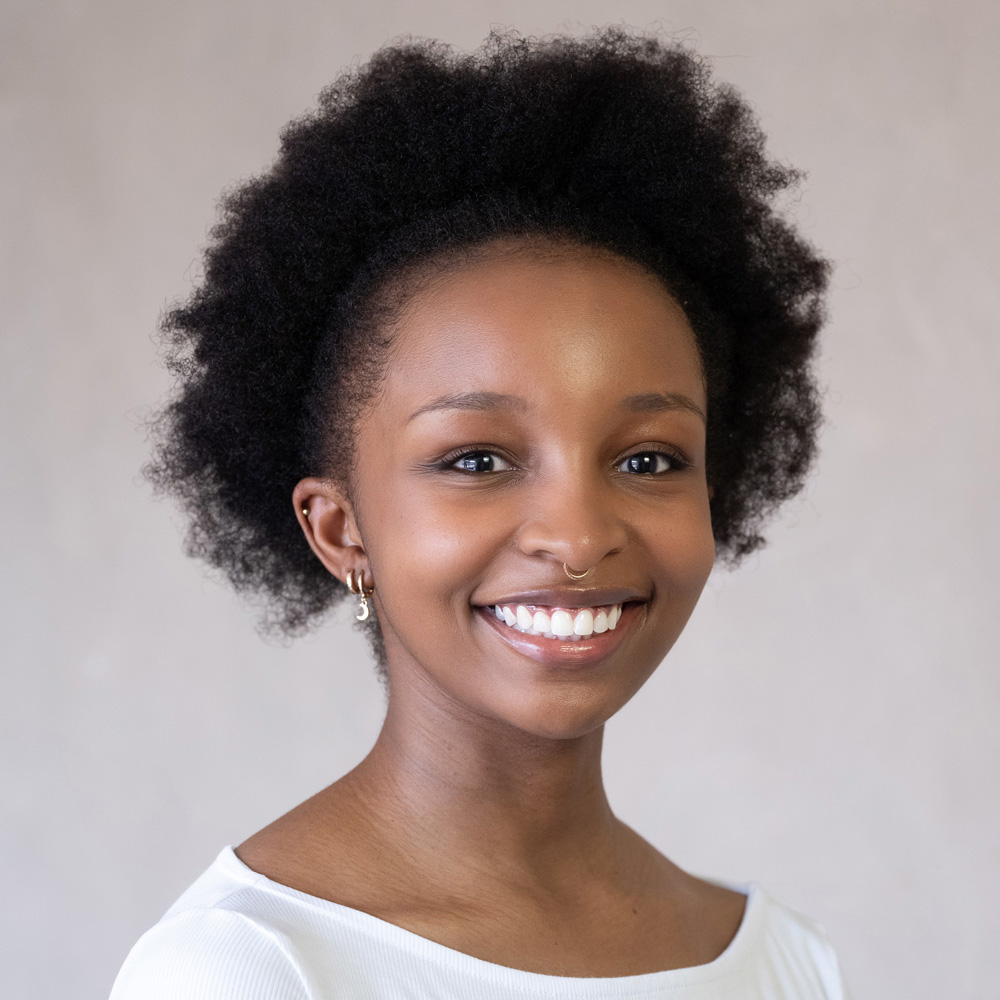On 17 May 2023, the Centre for Human Rights, Faculty of Law, University of Pretoria (Centre) commemorated the International Day Against Homophobia, Biphobia and Transphobia (IDAHOBIT). The Centre commemorated the day by hosting two events centred around this year’s theme of ‘together always: united in Diversity’, in collaboration with its networking partners Alliance Française, the South African Institute for Advanced Constitutional, Public, Human Rights and International Law (SAIFAC), at the University of Johannesburg, with the support of the Embassy of the Kingdom of Netherlands.
‘Are we together always, united in diversity in Africa?’ Panel discussion at Alliance Française
The event at Alliance Française, Pretoria, was organised by the clinic students of the Sexual Orientation, Gender Identity and Express, and Sex Characteristics (SOGIESC) Unit of the Centre, Lakshita Kanhiya and Ilse Syonthi Kithembe, who are currently in the Human Rights and Democratisation in Africa (HRDA) programme. The event began by unpacking the theme ‘Are we together always, united in diversity in Africa?’
The participants discussed queer organising, activism, religion and the politicisation of homosexuality in Africa. Professor Frans Viljoen, Director of the Centre, highlighted the fact that despite the introduction of anti-queer laws in some countries in Africa, other countries such as South Africa, Seychelles and Cape Verde, and most recently Botswana, had decriminalised consensual same-sex relations towards the better protection of the rights of sexual and gender minorities in those countries. He also highlighted the recent decision in the Namibian High which recognised same-sex marriages entered into outside Namibia, as an example of positive legal reforms amid regressive laws in other parts of Africa. As a way of commemorating the day he called on participants to celebrate these advancements, confront the existing challenges, and seek energy to continue pursuing sexual and gender minority rights in Africa.
Panellists of the event comprised Tamabudzai Gonese-Manjonjo, Deputy Director, Southern Africa Litigation Centre, (SALC), Dr Yuvan Mathias Shunmugam, Post-Doctoral Fellow, University of South Africa (UNISA), Tashwill Estherhuizen, Legal Adviser on sexuality and gender, Amnesty International, Allan Tumbo, Senior Researcher, South Africa National Human Rights Commission, Steve Letsike, Executive Director, Access Chapter 2 and Landilani Banda, Acting Manager, SOGIESC Unit, the Centre. The panellists broadly reflected on the challenges facing sexual and gender minority rights in Africa due to hostile legal and political environments, and unfavourable narratives based on African cultural values, religion and popular morality.
Panellists also explored strategies through which the legal and political environment as well as the unfavourable narrative can be contested. Strategies included resocialisation programmes centred on countering religious and cultural narrative and strategic litigation aimed at positive and queer friendly law reforms. As the event was celebrated under the theme ‘together always: unity in diversity’, the panellists reflected on the power of solidarity, allyship and community across identities and movements.
'Does the Uganda Anti-Homosexuality Bill -constitute an international crime?’
The Centre also co-hosted a panel discussion with the South African Institute for Advanced Constitutional, Public, Human Rights and International Law (SAIFAC). The discussion centred on the title 'The Uganda Anti-Homosexuality Bill (‘The Bill’) - does it constitute an International Crime?' (link). The event, held virtually on Zoom, brought together experts and activists to discuss the implications and challenges posed by the Bill. The panel comprised of Landilani Banda, Acting Manager of the SOGIESC Unit at the Centre, Dr Ayodele Sogunro, Senior Postdoctoral Fellow at the Centre and Sexual Rights Lawyer at the Initiative for Strategic Litigation in Africa (ISLA), Geoffrey Ogwaro, Advocacy and Policy Engagement Programme Officer at the Uganda Key Populations Consortium, and Laura (Cori) Arudi, Programmes Officer at the Network of African National Human Rights Institutes. The panellists addressed the roles of states, civil society, religious leaders and non-governmental organisations regionally and internationally in the context of the Bill.
The panellists further discussed the human rights implications of the Bill on sexual and gender minorities, civil society and activists in Uganda and across Africa. The economic and international trade implications of the Bill was also a point of discussion with panellists and participants reflecting on whether the Bill in Uganda and anti-queer laws in Africa should attract trade sanctions. Panellists and participants also reflected on the need to challenge the substance of the Bill, should it comes into force, using the Constitution of Uganda and international human rights law jurisprudence developed by international human rights treaty monitoring bodies.
The discussions further shed light on the personal and organisational development opportunities available for attendees, such as attending courses organised by the Centre to share expert knowledge on sexual and gender minorities, as well as strategic litigation to combat discrimination against members of the queer community, particularly in hostile localities.
We Keep Marching: A night of reflection on activism against queerphobia
To end IDAHOBIT, the Centre attended an event hosted at Constitution Hill by GALA Queer Archive, together with the Embassies of the Kingdom of the Netherlands and Ireland in South Africa. The event included musical entertainment by the Johannesburg Queer Chorus, an amateur choir of members and allies of the LGBTQI+ community, and a panel discussion.
Throughout the venue, an ongoing exhibition of material from the GALA queer archives was open for viewing. The exhibition included historic items such as placards, posters, banners and t-shirts worn at South African pride marches from 1990 to 2023. GALA Youth Forum volunteers provided history and information on these items showcasing resistance against anti-queer and racist policies.
Director of GALA, Keval Harie, opening the event, recognised the need for continued support for activists and the ongoing struggles that many LGBTQI+ activists in South Africa face. Ambassador Han Peters from the Embassy of the Kingdom of the Netherlands drew attention to ongoing regional events such as the positive judgment of 16 May 2023 by the Supreme Court of Namibia on recognition of same-sex marriages and civil unions entered into in foreign jurisdictions. Ambassador Fionnuala Gilsenan from the Embassy of Ireland also spoke to ongoing regional issues including the impending signature into law of the Anti-Homosexuality Bill in Uganda and the impact of the Bill in surrounding African states.
IDAHOBIT is an annual celebration, on 17 May to raise awareness of the stigma, discrimination and violence faced by lesbian, gay, bisexual, transgender, intersex, and queer (LGBTIQ+) individuals and groups worldwide. 17 May was explicitly chosen to honour the World Health Organisation’s (WHO) decision in 1990 to declassify homosexuality as a mental disorder. IDAHOBIT has always provided opportunities for activists, allies, and LGBTIQ+ individuals to promote inclusion and acceptance of LGBTIQ+ people, and to advocate for their human rights.
For more information please contact:
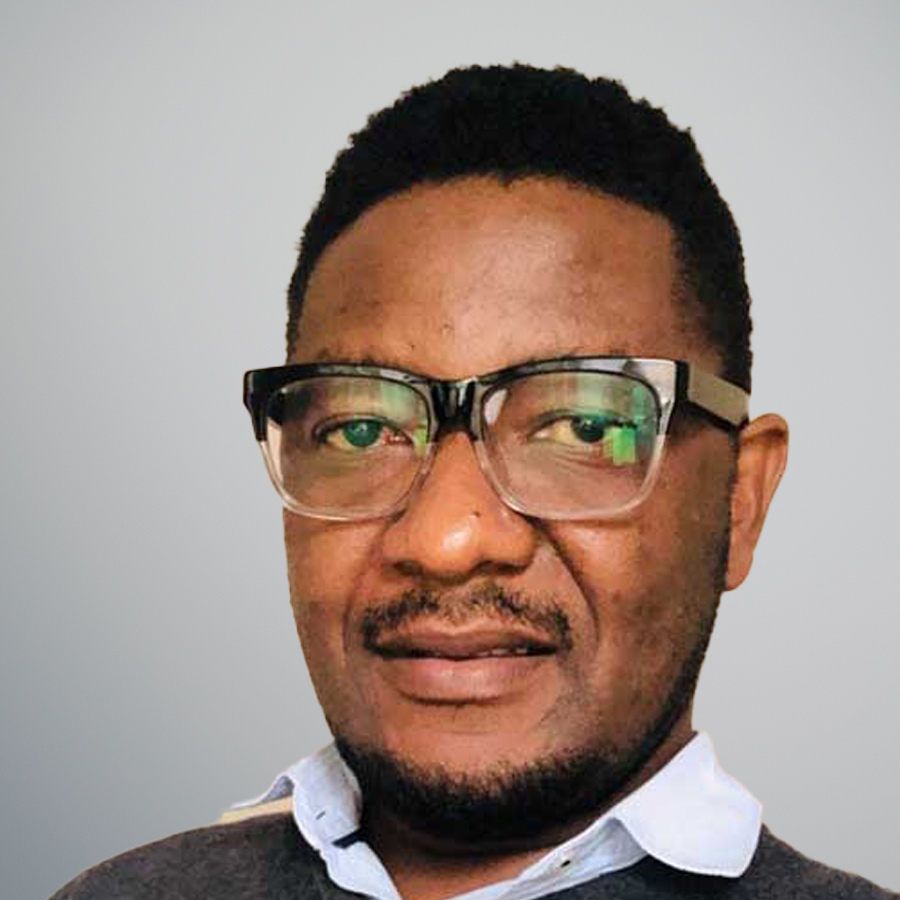
(he/him)
Tel: +27 (0) 12 420 3151
landilani.banda@up.ac.za
Tel: +27 (0)12 420 3151
ch.vanderlinde@up.ac.za

